This is the fifth in a series of posts examining where to start reading various writers, based around my bookshelves. As with the earlier posts, I welcome comments adding writers I have misplaced, neglected or forgotten, and also do feel free to disagree with my choices of starting points.
As well as the nice little logos Jamie has done for these, we also have an index, which is here.
To continue, E.
E starts with Edward Eager, who wrote whimsical fantasy children’s books in the style of E. Nesbit. They’re all good, but I started with Half Magic, which made me laugh myself sick when I was seven, and made my son laugh himself sick when he was the same age and at the same joke. I have no idea if these books work if you read them when you’re grown up, but they are in print, and any of them would make a great present for any seven-year-olds of your acquaintance.
E.R. Eddison ought to come next, but doesn’t, it languishes on the to-read shelves. I have tried several times to read The Worm Ourobouros, largely because almost everyone I know speaks highly of it, but I cannot get into it. Janet in Tam Lin likes it, and so do other people whose tastes have a high degree of congruence with mine, but I do not. Maybe I should start somewhere else (where?) or perhaps I’m just not old enough for it yet.
George Alex Effinger is what does come next. Start with When Gravity Fails.
I’ve only read Doris Egan’s Ivory trilogy once, but I enjoyed it a great deal. Expect a post about it next month, because I’m planning to re-read it on the train to Fourth Street. Start with Gate of Ivory and read them in order. Or you could read City of Diamond, as by Jane Emerson.
Greg Egan is one of my favourite writers, and you should start with the brilliant and amazing Permutation City, or else with some of his astonishing short stories some of which are available for free online.
With Suzette Haden Elgin, begin with Native Tongue and if you really really like it seek out her other books. It’s a mosaic book about the possibility of communication.
George Eliot—definitely Middlemarch. It would be possible to make other suggestions, but whatever you do, don’t start with Silas Marner, which is short, which isn’t one of Eliot’s strengths, but which schools regard as a plus when it comes to assigning reading. All her other books are better.
Harlan Ellison’s best work is at short length, and any collection you find will have gems in it. As an editor, his Dangerous Visions is one of the most important works in the genre.
Kate Elliott—oh, Jaran, such a great barbarian culture, and science fiction too. It’s the start of a series but it stands alone. I love that book. If you only like fantasy and don’t mind long series, start with King’s Dragon.
Sumner Locke Elliott—well, Going is the most like SF. But start with any one you can find.
Jane Emerson is actually Doris Egan, so see above.
For Sylvia Louise Engdahl, you should begin with Heritage of the Star, US title This Star Shall Abide. (I’m usually OK with title changes, and TSSA is a better title, but when I’ve known a book from childhood I can’t seem to retrain my brain.)
Marian Engel (not to be confused with Madeleine L’Engle) is a Canadian feminist writer whom I discovered when very short of English language reading material in Greece. Monodromos is my favourite, but I’ve enjoyed all her books.
I started M.J. Engh with Arslan, which is very good, but very hard to take. You might be better starting with Rainbow Man, which is definitely an easier read.
Jon Evans is another Canadian writer, this time of thrillers that keep you absolutely on the edge of your seat. Start with Dark Places. But don’t start it at bed time, you’ll be up all night.
Jo Walton is a science fiction and fantasy writer. She’s published eight novels, most recently Half a Crown and Lifelode, and two poetry collections. She reads a lot, and blogs about it here regularly. She comes from Wales but lives in Montreal where the food and books are more varied.










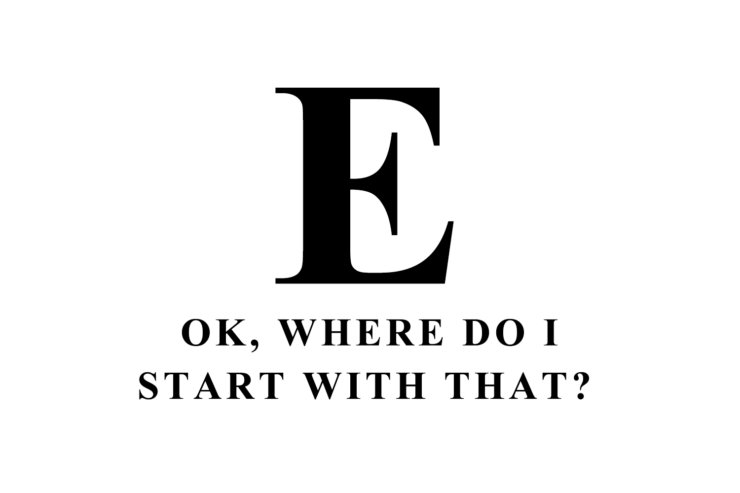
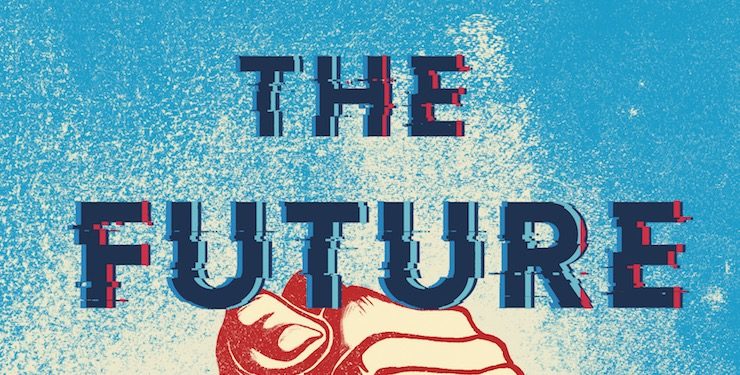
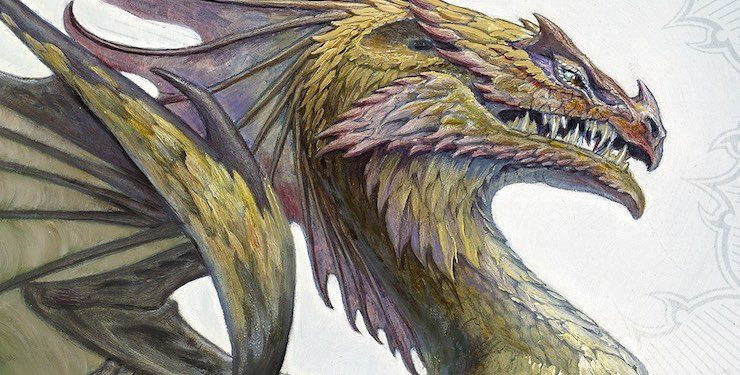
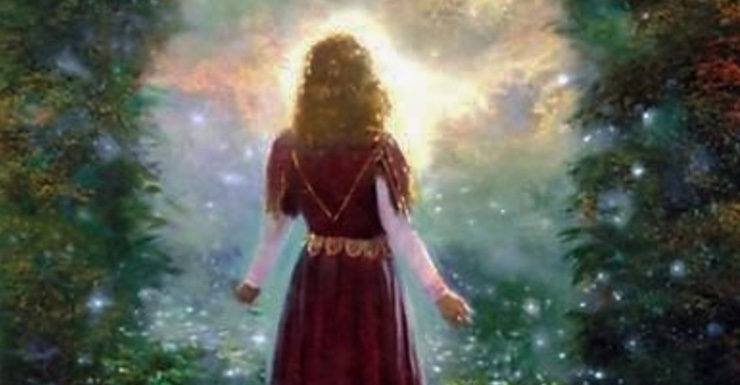
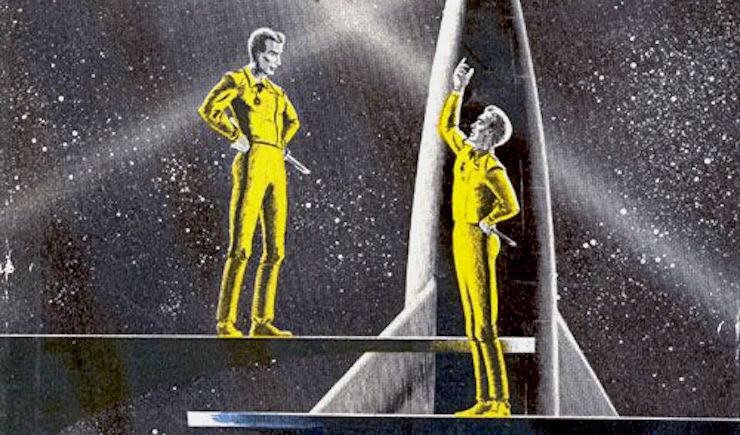
No Eddings or Erikson ?
I enjoyed G.C. Edmondson for The Ship That Sailed the Timestream Nebula nominee – hardly worth searching out – but a buy from the ten cent shelf.
Eddison can be tough going and I’ve never really gotten into him. I suppose he compares to Peake or some of the more turgid Dunsany.
For the Eddings, the obvious place is to pick either the Belgariad or the Elenium and start with the first book. (I haven’t read the Dreamers.) But if you want less of a commitment and still want to understand what the Eddings are all about, try The Redemption of Athalus. It hits all the high notes and compresses the usual multi-volumes into one.
Jo, you’ll be glad to hear that Ms. Egan is planning a return to novels: the plan for the year is to write an episode of House, a pilot, a comic book, and a novel.
For Harlan Ellison if you get the collection ‘The Essential Ellison’ start in the middle – the early stuff is really rough, and only after you get an appreciation of his middle to later stuff is the early stuff worth reading.
Eddings, the Belgariad and the Malloreon are guilty pleasures books for me, so I’d definitely start at the beginning of the Belgariad.
Effinger I agree on ‘When Gravity Fails’, I was happy to see those books go back in print recently after being out of print for a long time.
PN Elrod – Start with ‘Bloodlist’, the beginning of the Vampire Files, though in my opinion they get better later, still need to start at the beginning.
Umberto Eco – ‘Foucault’s Pendulum’ or ‘Name of the Rose’, both are excellent.
Don’t ask me how I missed Eager when I was seven, but I did. I found him when I was in my mid-30s or so, and I liked him enough to buy them all. He’s not as good as Nesbit, but then, who is?
For Eddings, Belgariad is the obvious choice. If you like it, you may read more, if not, it doesn’t get any better.
For Erikson, starting at the beginning with Gardens of the Moon seems obvious choice, but if you don’t want to commit to multivolume series, you may start with his necromancers novellas. They were published with omnibus volume called The First Collected Tales Bauchelain and Korbal Broach, IIRC.
For Sylvia Engdahl I would go with Children of the Star. There also was an omnibus edition.
Um, Children of the Star was a trilogy. I somehow managed to miss this word.
I dont know why Eddings would be a guilty pleasure. I enjoyed Belgariad and Mallorean, also the Elenium and Tamuli. I would start with any of the first books of the series.
Ellison is good but nowhere near as good as he thinks he is…a pain in the ass is about as kind of words as I have heard about him.
Although not necessarily an “E” author, I’ve yet to see any review or mention of Magician of Oz by James C. Wallace II (yea, I know it’s me), despite the fact that there are many reviews of many other Oz books. Now Shadow Demon of Oz has found its way to the Great Outside and awaits its place in the mix, so to speak. Fortunately, both Magician of Oz and Shadow Demon of Oz will be featured at Oz-stravaganza! in early June as James C. Wallace II is one of the featured authors residing in Author’s Alley.
Ralph Ellison–“Invisible Man.” Race issues in the 1950’s in New York. Wonderful writing and deep issues.
In regard to George Eliot, I have the exact opposite opinion, but I suspect the context of the reading may have much to do with it. I recommend starting with Silas Marner, which is such a wonderful little story, but for a century, it’s been shoved down the throats of students (my 70-year-old father still complains about it). I read it as an adult of my own free will and loved it (although, it does begin slow). Middlemarch was the subject of my master’s thesis, took me three months to read (granted, I read a dozen other novels at the same time), and can be very difficult. Some of it I still do not understand, and I’d liked to read it again, but it’s 800 pages, and there are so many other books to read!
I rather enjoy Rosemary Edghill, who writes in so many genres. I’d personally start with her Twelve Treasures series (SWORD OF MAIDEN’S TEARS etc). although I know that others prefer her collaborations with Mercedes Lackey.
Two on my shelves not mentioned so far are Gordon Eklund for science fiction and Phyllis Eisenstein for fantasy. Not sure where you would start.
Anybody know anything about Carol Emshwiller? It’s a name I’ve run across a lot, but I’ve never read anything by her (except possibly some short stories).
I think of Eddison as offering a superiority fantasy– it’s got something of the same emotional effect as Doc Smith. To generalize from two examples, maybe you can’t write a good superiority fantasy without hyperbolic language.
I’m fond of Rosemary Edghill’s Bast mysteries (collected in Bell, Book, and Murder.
I’m starting George Eliot with Romola, because someone on LibriVox is coordinating a recording of it, and I’m participating in that. I’ve only read the first three chapters; they’re amusing enough (although the occasional authorial intrusions commenting on the differences between 15th century and 19th century Florence jar a bit…later historical novelists wisely avoid that sort of thing).
I enjoyed Permutation City, but the stories in Axiomatic blew my head off, so I definitely recommend starting Greg Egan with the latter.
Edward Eager! Thank you! Those books are among the things that I devoured from the library at a young enough age, and so quickly, that I couldn’t be bothered to remember what they were called or who wrote them. I believe that besides the general E. Nesbit homage nature of the books, he also had his characters mention Nesbit by name now and then, which got me to seek her out too.
I still crack up every time I remember this bit from the one where the kids have traveled to medieval England (or actually a pseudo-world based on a historical novel – kind of an interesting idea), and they’re suspected of witchcraft because of the trademark on their underwear: “‘BVD’! Meaneth that not ‘bene volens diabolis’, or ‘best wishes from the Devil’?”
I’m glad to see someone else has read ‘The Worm Ourobouros’ on Janet’s recommendation and didn’t like it. I kept wondering when it was going to start being good.
For Greg Egan I’d definitely recommend starting with the short stories, particularly the collection ‘Axiomatic’. I’ve never found the novels as satisfying, apart perhaps from ‘Teranesia’.
I agree with the Eco recommendations from Artanian. ‘Foucault’s Pendulum’ should also be read by aspiring writers for its description of the functioning of a vanity press.
I’d add Dennis Etchison’s short story collection, The Death Artist.
I’m really enjoying this series. In fact, Jo, I always make a point of reading your posts.
I’m happy to add Momo, by Michael Ende. I think he’s better known for The Neverending Story, but I think Momo is more perfect. It’s a story that’s wonderfully scary and consoling at the same time.
Ru Emerson, The Princess of Flames
I liked her other series (Night-Threads stands out), but not as much as this first book.
I was never able to get into Sylvia Engdahl’s Children of the Star trilogy. I much prefer Enchantress from the Stars and The Far Side of Evil.
Kate: I am delighted. Thank you for letting me know!
I would start reading George Alec Effinger with What Entropy Means to Me, a personal favorite.
Since you mentioned Edward Eager, I thought of two other authors on my children’s bookshelf: Elizabeth Enright and Eleanor Estes. For Enright, I would start with The Saturdays. For Estes, I prefer to start with The Moffats. (As a bonus, all three writers are double E’s.)
Elizabeth Enright: Start with The Saturdays. If you like the Melendy family, go on to The Four-Story Mistake and And Then There Were Five; Spiderweb for Two is amusing but not necessary unless you’re a completist.
DemetriosX @3 et al.:
Do not read The Dreamers by Eddings. I love Eddings to pieces (I’m actually re-reading The Belgariad right now and have read each of the first four fantasy series he published numerous times) and for most of The Dreamers it was just the standard Eddings style, but the ending was hands-down the worst I have ever read in any book. It completely ruined the entire series for me.
Just my opinion of course, but You Have Been Warned!
I picked up my copy of The Worm Ouroboros some months ago to re-read it. The language is just too heavy going. I have persevered and got as far Chapter VII without the language particularly improving. I would suggest a reader should begin E.R. Eddison with Mistress of Mistresses which is regarded as the first of his Zimiamvian trilogy. Even there his opening chapter The Overture are rocks that readers have grounded themselves on. Skim over it if necessary, the real story begins with A Spring Night in Mornagay.
Well, count me among those who do love Eddison – our wedding rings are made in the form of the Worm Ourobouros itself because of the book and the symbolism. The language doesn’t “improve” as you go on, though; if it doesn’t feel beautiful to you from the first few chapters, it’s not going to, at least on that reading. It’s just not to everyone’s taste, and not even to the same people’s taste at all times.
Eco – definitely Foucault’s Pendulum. The long conversation about what the Templar regulations implied about what the Templars secretly were wishing to do is hysterical.
Never got into Eddings. The ‘E’ section of my collection is surprisingly skimpy; I just checked it. I think I need to go back to the ‘D’ page and add a few more suggestions there.
Another ‘E’ I recommend (again) is Teresa Edgerton – I know she’s written several more recent books which I have yet to read, but Goblin Moon and The Gnome’s Engine are charming Georgette Heyer-esque fantasy, and her alchemical Green Lion trilogy is also wonderful.
Hm, my favorites have already been mentioned. Some specific titles:
I’d recommend Teresa Edgerton’s Child of Saturn from the Green Lion trilogy always struck a nerve with me.
For Rosemary Edghill her Wicca murder mystery series Speak Daggers to Her.
Phyllis Eisenstein’s Sorceror’s Son.
I agree with Ru Emerson’s The Princess of Flames (she’s one of those authors that I wonder where she is now).
For Steve Erikson I couldn’t read his first Malazan novel, but really got into Deadhouse Gates with little problem.
I like “Worm”, but I can see why one would have trouble starting it: the prose style, the unnecessary Lessingham chapters, and the plot really doesn’t get interesting until Gorice XII shows up.
What about Madeline L’Engle? Are we putting her under “L” b/c we can’t leave her out completely!
Sweetlilflower: L’Engle starts with L, on my bookshelves anyway.
I started The Worm Ourobouros (yes, on Janet’s recommendation) and I didn’t have trouble with the language so much as with the war-loving aspects. I was especially sensitive to it at the time because we’d just invaded Iraq, and reading about war in addition to hearing about it on the news was just too much for me.
RE: Kate Elliott –
I must say.. I’d never read any of her stuff before I picked up ‘Spirit Gate’. I absolutely fell in love with it, adored the other books in the series and now feel compelled to check out the rest of her stuff.
So as a newcomer to her work, I would highly, highly recommend her ‘Gate’ series.. just really excellent fantasy. She does such a swell job with moral ambiguity, which I think can be a difficult thing to portray well.
I’d go for _The Neverending Story_ for Ende, myself… I remember Momo being blah, but maybe it’s time to reread it.
Janet Evanovich: _One For the Money_ starts her Stephanie Plum books, which are hilarious. Formulaiac, but hilarious, and I think she’s got a nice eye for humanity. Romance/adventure. She does do an urban fantasy offshoot of the Plum books, but the one I’ve read of those so far was bad.
Julie Edwards (yes, the singer/actress) wrote _The Last of the Really Great Whangdoodles_ which was/is a real treasure of my childhood… I think it’s the only book she’s written?
You’d think that there weren’t that many E authors. But even with 30+ comments ahead of mine, I’ve got a few others…
Suzette Haden Elgin can also be started at _Twelve Fair Kingdoms_ – first of a fantasy trilogy that’s still sort of preachy, but in a preachy-to-kids sort of way rather than the heavier-handed morals from her other books. I can let it run off me as I read, for her books, but I know others have said they can’t. In the meantime, it has a delightfully odd magic system, and some quirky social systems as well; proceeding from castle to castle via flying Mule, for example.
Clayton Emery wrote a variety of Magic-the-Gathering tie-in novels, plus a D&D-setting trilogy from the Forgotten Realm’s previous-eras Netheril setting. Popcorn/chips books, but quite readable.
If we’re mentioning Erikson, we also have to mention Esslemont, who co-created the world they’re both writing in. He’s only got a couple books out here in the US as yet, but they’re good reads. If a bit puzzling if you haven’t read the whole Malazan series from Erikson so far – but it’s more of a “you’ll miss THIS cameo and not really know the significance of THAT remark” thing than a “you won’t be able to follow the plot at all” one. Start with _Night of Knives_, for him.
Lloyd Arthur Esbach wrote a four-book series about The Land Beyond the Gate, and I find I’ve been misspelling him as “Esbach” for quite some time in my booklist file… High fantasy, with a good Celtic-mythology component if I recall right. Start with _The Land Beyond the Gate_.
–Dave
Another E comes to mind: German author Andreas Eschbach. Only one of his books has been translated into English, The Carpet Makers. It’s got a sort of New Wave feel to it. If you can read German, some of his other books aren’t bad.
MadelineF, 35: She also wrote one called _Mandy_, which has no magical elements at all, and which I therefore found disappointing. (It might have been intended for adults, I don’t know.)
David, 36: I found out I was a grammatical prescriptivist when I was 13, thanks to 12 Fair Kingdoms–her characters kept saying “could of” and “would of,” and I *hated* them for it. I slogged through all three books, but I’ve never reread them.
Hi, Jo,
Just completed Chapter 1 of Dark Places (Jon Evans), and WOW! I can vouchsafe the verisimilitude of the setting, and the rigors and fatigue of trekking at altitude, Annapurna included; Evans gets correct all the details, which augurs well for the story. Looks like I will like and enjoy this book. Thank you.
You completely ignore another Evans, Justin. His A Good and Happy Child is simply magisterial. (I could name other Es as well, but will leave it at the one.)
PS: If a TOR representative reads this post, please fix (or render inactive) captcha. No matter what I do (preview, post, refresh the page, even open a new page), the utility does not appear. Perhaps I have yet to receive the invisible ink reader…?
Jennifer Estep’s Bigtime superhero trilogy is lots of fun. Start with _Karma Girl_.
Georgia Evans [penname for Rosemary Laurey] has a paranormal trilogy set during World War II. Nazi vampires invade the English countryside and meet pixies, a werewolf, dragons, & co. Hijinks ensue. The first one is _Bloody Good_.
Thanks for doing these posts, Jo! You’re helping folks unearth lots of treasures.
Thank you, Jo. A very enjoyable novel!
For Carol Emshwiller, start with her short stories or read THE MOUNT which is an excellent novel from a wild point of view. Very alien feeling.
Jo – these posts are terrific. I don’t have a lot of time to respond to stuff on the internet, but sometimes I just have to!!
On the comics front, Garth Ennis’ Preacher series is excellent, and very dark. I have a love/hate relationship with Ennis, but this series is the only thing of his I love completely. You’ll never think of Jesus (or Christianity, for that matter) in quite the same way again.
Enright’s Melendy series really gets better as it goes, though _The Saturdays_ is not bad at all. Those and the Gone-Away Lake books (also by Enright) were essentially The Books when I was growing up (the default books, the ones to which I returned whenever possible). Now my son is almost equally fond of them, which pleases me no end.
For me, The Worm Ouroboros starts to really get interesting with chapter 4 and the interaction between Gorice XII and Gro. In general, I find the chapters with the Witches more interesting than the ones featuring the Demons. But I’ve always loved this book.
Regarding George Eliot, genre-readers might well enjoy “The Lifted Veil” – it’s a novella about the ability to read minds. Love it.
I’m also a big fan of Native Tongue. I haven’t read anything else by Suzette Haden Elgin, but I thought this was wonderful in the way it explored language, power and alien contact.
Also Euripedes Medea.